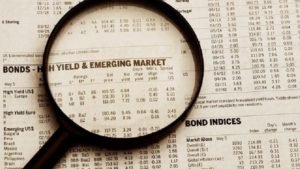Gilligan issued an updated buy note for the fund which said it was broadly flat in 2011, while the FTSE All Share TR Index fell 3.5%.
"Although this performance was disappointing in absolute terms, it was pleasing that investors’ capital was preserved in a period when risk assets (including stock markets) were weak. The FTSE All Share TR Index experienced a peak to trough decline of 17.3% in the second half of 2011, while the Jupiter fund rose by 4.7% during the same period," said Gilligan.
He added that the fund had shown correlation of -0.5 with the UK stock market in 2011, underlining its strong diversification purposes.
For his part, Gibbs remains cautiously positioned because he views the debt-induced problems of the western world as too significant to warrant putting the portfolio capital at too much risk.
He invests in on a global basis in a wide range of asset classes and can take synthetic long and short positions through using derivatives.
According to information gleaned during his meeting with Gibbs, Gilligan said the manager sees some reason for optimism – equity valuations are low relative to bonds, emerging markets are in fairly good shape and western governments appear determined to do whatever it takes to support their economies.
But Gibbs also thinks that if the economies in the US, Japan and Europe are struggling despite low rates and high deficits, then worse could happen if deficits are addressed or rates increase.
His current portfolio shows modest long positions in cyclical and financial stocks, which are balanced with individual shorts in consumer sector and support services.
Gibbs is also running a modest long equity position (13%) via index futures and his short positions in US and Japanese government bonds have been reduced to less than 20%, according to Gilligan.
"We believe the fund will continue to do a good job of preserving capital in the near term while the markets remain in ‘risk-on’ mood," concluded Gilligan, "More importantly, we expect it to serve as a good insurance policy if conditions turn to ‘risk-off’."







